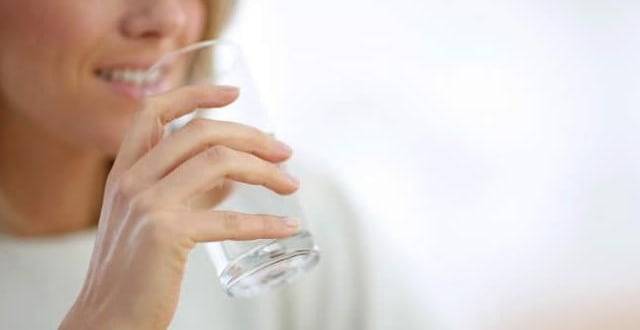
Everything you need to know about the most important element of our diet. Water – Dehydration
The serious one dehydration is not much common in healthy people. But there are exceptions, such as the elderly, athletes participating in very demanding competitions such as Marathons, and infants and young children with severe diarrhea.
Water is the most important element of our diet. A man can survive almost two months without food, but without water it will die in about seven days. Water represents 75% of an infant's body weight and 55% of an adult's weight.
Water – Dehydration
Our cells cannot function without water, and the body has a sophisticated, complex system to ensure an adequate supply. Part of this system is thirst, which is usually a reliable indicator that the body needs more water. Another indication is the dark color of the urine.
The benefits
Keeping the body well hydrated provides many health benefits. It is well documented to protect against kidney stones and there is evidence that it fights constipation and asthma. It can also protect against vascular problems, such as stroke, from tachycardia or a sudden drop in blood pressure, while it is extremely important for those suffering from diabetes.
Although water is vital, there are relatively few well-designed studies on its consumption, according to Dr. Barry M. Popkin, professor of nutrition at the University of North Carolina at Chapel Hill. And this is because "most studies so far concern specific organs, such as the kidneys or lungs, and not all systems of the body," he explains in the "New York Times" newspaper.
Thus, there are no official guidelines for water consumption, which depends on diet, body weight, level of physical activity and the environment where one lives.
Adequate intake
The Institute of Medicine (IOM), the US advisory body that issues the nutrient intake guidelines, states that adequate intake can range from 700 ml (about three medium glasses) per day for newborns to 3.8 liters (16 cups) for women who exclusively breastfeed their babies. However, one can be well hydrated with smaller amounts, he adds.
The IOM clarifies that these amounts include all kinds of drinks and foods that contain water. In fact, the IOM estimates that food water represents 20% of the average person's daily fluid intake.
The dangers
As mentioned above, exercisers and the elderly are two population groups that need to be very careful with their fluid intake.
Exercisers should drink plenty of water, especially when they are training hard and the heat and humidity cause them to sweat profusely.
But they should be careful not to overdo it: there have been reports of athletes dying after events like the Marathon because they drank more water than their kidneys could filter, resulting in cell swelling and fatally low levels sodium and other electrolytes in the blood. Water – Dehydration
Dehydration is also harmful: it can lead to reduced alertness, concentration, reaction times, learning, memory, mood and logical thinking, and cause headache, fatigue and anxiety.
Dehydration is a particular threat to the elderly, whose thirst mechanism is not only impaired, but they suffer from frequent thirst and thus reduce their fluid intake – a habit that can be fatal, according to Dr. Popkin.
Source: THE NEW Nested Health
